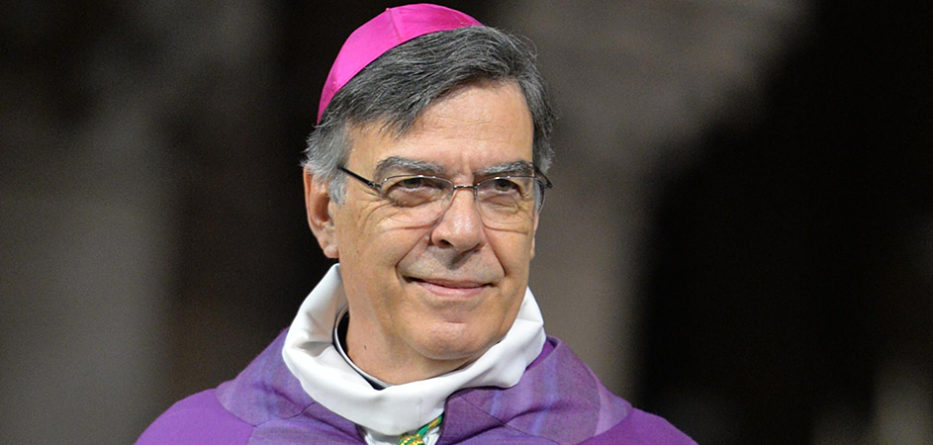Archbishop Michel Aupetit calls for dialogue and respect in interview with combative French TV and radio journalist
It was billed to be one of the most popular events on French radio and television.
Archbishop Michel Aupetit of Paris on Tuesday faced questioning from Jean-Jacques Bourdin, a popular journalist well known for his biting interviews.
But the man who, according to the Financial Times, “prides himself to be the raucous voice of the French working class”, proved not to be so combative with the Catholic leader of Paris.
Rather, Bourdin raised a host of social issues that Archbishop Aupetit calmly addressed and commented on.
He started off with the current health situation, asking the archbishop – who is a trained physician and former GP – if he had any vaccination instructions to offer.
“Do you encourage your faithful to get vaccinated?” Bourdin asked.
The 70-year-old Aupetit, who was installed as Paris’ archbishop in January 2018, nodded in the affirmative and said he especially encouraged people who are most vulnerable to get the jab.
The conversation then turned to France’s upcoming regional elections. The archbishop offered “no voting instructions”.
“We are for freedom of conscience, neither for nor against, but we must enlighten the conscience, which the Church has always done,” he said.
From there, they went on to discuss the Mila affair, concerning a teenage girl who had strongly criticised Islam on social media.
“Freedom of expression is not up for debate, but it must be accompanied by respect for others,” said the archbishop.
“Mila is in mortal danger for expressing an opinion, and that is unacceptable,” he declared.
Peaceful procession
Bourdin then opened up the topic of secularisation and the famous French notion of laicité.
Observing the look on the archbishop’s face, he said: “You raise your eyes to heaven?”
Aupetit told the journalist he was seeking the help of the Holy Spirit for this difficult question.
“Secularism is the possibility of practising one’s religion, including organising a peaceful procession that does not bother anyone,” he said.
The reference was to the recent procession to commemorate the 150th anniversary of the Catholic martyrs of 1871 Paris Commune, a peaceful event that turned ugly when far-left protesters attacked the marchers.
But the archbishop did not speak about that. Instead, he shifted gears.
“Some Muslims think that in France, because there is secularism, we do not have the right to speak of God,” he said.
“In the public debate, the voice of religions is not sufficiently taken into account, whereas it could play a role in the calming of society,” he continued.
“It is keeping to oneself that could be dangerous,” he warned.
“Where is the tolerance?” asked Bourdin.
Archbishop Aupetit confidently insisted on the importance of dialogue.
“I think there is goodwill, people must meet each other,” he said.
Culture and bioethics
Bourdin suggested that this was just wishful thinking when it’s the extremists who always grab the media spotlight.
“We must be careful. Radicalism is a narrowness of thought,” explained the archbishop when questioned on immigration.
“Throughout the course of its history, France has always been invaded, whereas today it is not a question of invasion, but of immigration. The question is, at what point is a culture destabilised,” he pointed out.
“Why are we afraid?” Archbishop Aupetit asked rhetorically.
“Because we are ignorant of our culture. If we were confident of our culture and our religion, we would not be afraid,” he then insisted, answering his own query.
The interview continued around ethical issues.
The archbishop addressed the terms of the permanent council of the Bishops’ Conference of France regarding surrogacy and denounced the “manufacturing of children”.
Aware that public opinion is in favour of it, he sees it as the result of a consultation debate.
“Unfortunately, all you need to do is repeat the same thing over and over again to convince people,” he lamented.
And then he said, “I am a free man.”
Reproduced with permission from La Croix International and Christophe Henning.








